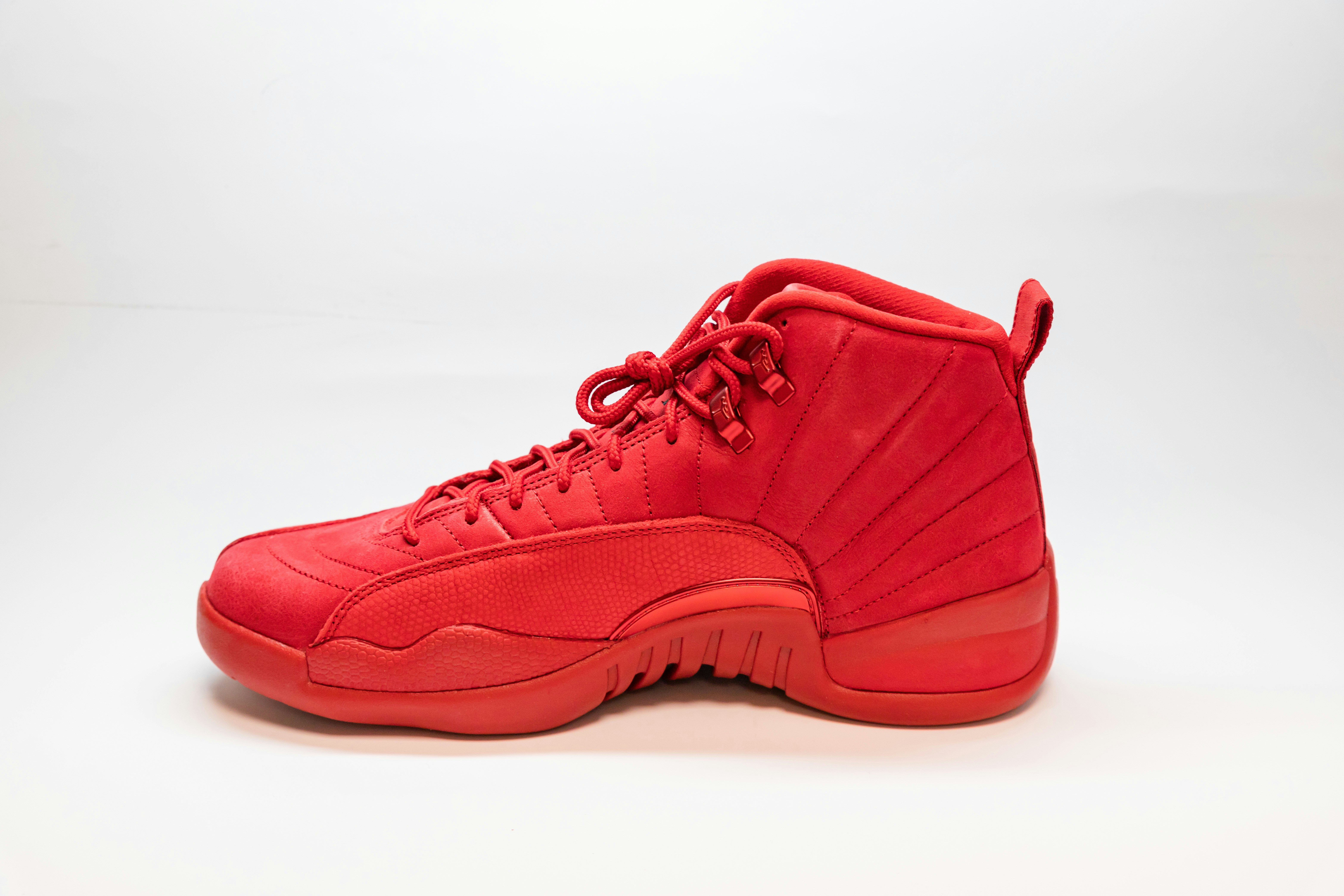Ship To GBR | $ USD |
The Pioneering March of Turkish Footwear Manufacturers: Mastering Global Markets
Turkey’s dynamic entry into the global footwear market is a testament to its rich historical craftsmanship, seamlessly blended with modern technological advancements. This comprehensive analysis offers an in-depth exploration of Turkey’s journey from traditional cobblers to becoming a leading player in the international footwear industry. With a focus on the evolution, innovation, and expansion strategies that define the sector, this discussion underscores Turkey’s role as a powerhouse in both quality production and market adaptability.
In this expanded analysis, we delve deeper into the factors that have contributed to the success of the Turkish footwear industry. We explore the industry’s resilience in the face of global challenges, its commitment to sustainability, and its strategic approach to capturing new markets. We also examine the role of government support and international trade agreements in facilitating the industry’s growth.
History of Turkish Footwear Manufacturing
Turkey’s footwear industry has roots deeply embedded in the country’s rich history, tracing back to the Ottoman Empire when artisans crafted shoes that were both functional and indicative of social statuses. The unique geographic location of Turkey, straddling two continents, has exposed it to a myriad of cultural influences, enriching its design ethos and artisanal techniques which have been passed down through generations.
The Ottoman Empire, known for its opulence and grandeur, had a profound influence on the aesthetics of Turkish footwear. Shoes were not just utilitarian objects; they were works of art, adorned with intricate patterns and made from luxurious materials such as silk and leather. The craftsmanship involved in creating these shoes was highly regarded, and the skills and techniques developed during this period continue to influence Turkish shoe-making today.
The significant shift from artisan workshops to industrial powerhouses began in the mid-20th century as Turkey sought to modernise its economy. Investments in machinery and training programmes were implemented, transforming the traditional shoemaking techniques into a more structured industry capable of mass production. This period marked the foundation of Turkey’s journey towards becoming a key player in the global footwear market.

The transition to industrial production was not without its challenges. It required significant capital investment and a shift in mindset from artisanal craftsmanship to mass production. However, the Turkish government and private sector were committed to this transformation, recognising the potential of the footwear industry to contribute to economic growth and job creation. They invested in state-of-the-art machinery and training programmes to upskill workers, laying the groundwork for the modern, efficient, and competitive industry that exists today.
Growth of Modern Turkish Footwear Manufacturing
As global demand for diverse and high-quality footwear increased, Turkish manufacturers invested in expanding their production capabilities. This involved not only enlarging physical facilities but also adopting advanced manufacturing technologies that allowed for scalability and flexibility in production to quickly respond to market changes. The distribution of Turkey’s footwear manufacturing is concentrated in specific regions, each known for particular specialities:
- Istanbul: As the vibrant economic heart of Turkey, Istanbul is home to a spectrum of footwear manufacturers focusing on everything from high-end fashion shoes to more casual designs.
- Gaziantep: Known for its robust production of rubber and plastic shoes, Gaziantep has capitalised on industrial growth to become a significant centre for affordable footwear.
- İzmir: Renowned for its leather craftsmanship, İzmir’s manufacturers produce high-quality leather shoes that combine traditional skills with contemporary fashion sensibilities.

The expansion and modernisation of the Turkish footwear industry have been driven by a combination of factors. The growing global demand for high-quality footwear, coupled with the increasing purchasing power of consumers in emerging markets, has created significant opportunities for Turkish manufacturers. To capitalise on these opportunities, manufacturers have invested heavily in expanding their production facilities and adopting advanced manufacturing technologies. These investments have enabled them to increase their production capacity, improve the quality of their products, and respond more quickly to changes in market demand.
Technological Advancements in Turkish Footwear Manufacturing
Embracing Automation and Digitalisation
The adoption of automated machinery and digital tools has revolutionised the Turkish footwear industry. Computer-aided design (CAD) systems, automated cutting machines, and robotic assembly lines have enhanced both the efficiency and precision of shoe manufacturing processes, enabling producers to maintain high standards while meeting large volume orders.
The impact of technology on the Turkish footwear industry cannot be overstated. The adoption of CAD systems has transformed the design process, allowing designers to create more complex and innovative designs. Automated cutting machines and robotic assembly lines have increased the speed and accuracy of production, reducing waste and improving the consistency of the finished products. Digital tools have also enabled manufacturers to streamline their supply chains, improve inventory management, and enhance their customer service.
Innovations in Material Usage and Shoe Design
Turkish manufacturers have also been at the forefront of experimenting with new materials and designs. The integration of sustainable materials such as recycled polymers, organic textiles, and chrome-free leather in production processes not only addresses environmental concerns but also caters to the growing global demand for eco-friendly products.
Innovation in material usage and shoe design is a key competitive advantage for Turkish manufacturers. They are constantly experimenting with new materials and designs to create products that are not only stylish and comfortable but also environmentally friendly. The use of recycled polymers and organic textiles in shoe production is a testament to their commitment to sustainability. At the same time, the use of chrome-free leather and other alternative materials ensures that their products meet the highest quality standards.
Sustainability Practices in Turkish Footwear Production
Eco-friendly Manufacturing Initiatives
The shift towards sustainable production is evident in the widespread implementation of practices aimed at reducing the environmental impact of shoe manufacturing. This includes water conservation techniques, energy-efficient machinery, and waste reduction measures that align with international environmental standards.
The Turkish footwear industry’s commitment to sustainability is reflected in its adoption of eco-friendly manufacturing practices. Manufacturers are implementing water conservation techniques, such as rainwater harvesting and wastewater recycling, to reduce their water usage. They are also investing in energy-efficient machinery and renewable energy sources to reduce their carbon footprint. In addition, they are implementing waste reduction measures, such as recycling and composting, to minimise the amount of waste generated by their operations.
Social Responsibility and Ethical Practices
Alongside environmental efforts, Turkish footwear manufacturers are increasingly focused on social responsibility, ensuring fair labour practices and contributing to community development. This commitment to ethical practices not only enhances brand reputation but also aligns with the expectations of global consumers who prioritise sustainability.
Social responsibility is a core value of the Turkish footwear industry. Manufacturers are committed to ensuring fair labour practices, providing safe and healthy working conditions, and paying fair wages. They also contribute to community development through various initiatives, such as supporting local schools and healthcare facilities. This commitment to social responsibility enhances their brand reputation and builds trust with consumers, who are increasingly prioritising sustainability and ethical practices when making purchasing decisions.
Turkish Footwear on the Global Stage
Export Strategies and International Market Penetration
Turkey’s strategic geographical location offers logistical advantages in exporting to Europe, the Middle East, and North Africa. The development of sophisticated logistics and distribution networks has enabled Turkish footwear manufacturers to establish a strong presence in these markets, characterised by timely deliveries and flexibility in order fulfilment.
The success of Turkish footwear manufacturers on the global stage can be attributed to their effective export strategies and international market penetration. Their strategic geographical location, coupled with their sophisticated logistics and distribution networks, enables them to deliver their products to customers in Europe, the Middle East, and North Africa in a timely and efficient manner. They also offer flexibility in order fulfilment, allowing them to quickly respond to changes in market demand.
Building Brand Presence Internationally
Several Turkish footwear brands have successfully expanded beyond national borders, establishing themselves in global markets. Brands such as İnci, Hotiç, and Flo have become synonymous with quality and style, leveraging Turkey’s reputation to compete with international footwear giants.
Building a strong brand presence internationally is a key strategy for Turkish footwear manufacturers. Brands such as İnci, Hotiç, and Flo have successfully established themselves in global markets, becoming synonymous with quality and style. They leverage Turkey’s reputation for craftsmanship and quality to compete with international footwear giants. Their success is a testament to the strength of the Turkish footwear industry and its potential for further growth.
Economic Impact and Contributions to the Turkish Economy
Role in Employment and GDP Growth
The footwear industry is a significant employment generator in Turkey, providing jobs to hundreds of thousands across its supply chain from production to retail. The sector’s contribution to GDP is substantial, with footwear exports playing a critical role in Turkey’s trade balance.

The economic impact of the Turkish footwear industry is significant. It is a major source of employment, providing jobs to hundreds of thousands of people across its supply chain, from production to retail. The industry’s contribution to Turkey’s GDP is also substantial, with footwear exports playing a critical role in the country’s trade balance. The success of the industry has a ripple effect on the broader economy, stimulating growth in related sectors such as logistics, retail, and tourism.
Support from Government and Trade Agreements
The Turkish government provides various incentives for the footwear industry, including subsidies, tax reliefs, and support for participation in international trade shows. Additionally, Turkey’s customs union agreement with the EU and free trade agreements with various countries facilitate smoother and more cost-effective export processes.
Government support and international trade agreements play a crucial role in the success of the Turkish footwear industry. The Turkish government provides various incentives for the industry, including subsidies, tax reliefs, and support for participation in international trade shows. These incentives help to reduce the cost of production and increase competitiveness. Additionally, Turkey’s customs union agreement with the EU and free trade agreements with various countries facilitate smoother and more cost-effective export processes, further enhancing the industry’s competitiveness on the global stage.
Challenges Facing the Turkish Footwear Industry
Competitive Global Landscape
Turkey faces intense competition from manufacturers in Asia, particularly China, India, and Vietnam, known for their low production costs. Turkish manufacturers counter this by emphasising superior quality, innovative designs, and rapid production capabilities.
Raw Material Cost Volatility
The volatility in prices for essential materials like leather and synthetic fabrics poses ongoing challenges. Turkish companies mitigate these risks through strategic sourcing, stock management, and exploring alternative materials that meet quality standards without substantial cost implications.
Future Outlook and Opportunities for Innovation
Adapting to Changing Consumer Preferences
The Turkish footwear industry is well-positioned to adapt to shifting consumer trends, such as the increasing demand for vegan and environmentally sustainable products. Investment in research and development to explore new materials and technologies is crucial for staying relevant in the evolving market.

Potential for Expansion into New Markets
Emerging markets in Africa and Asia present new opportunities for Turkish footwear exports. These regions offer vast untapped potential due to their growing middle-class populations and increasing fashion consciousness.
Additional Insights in Footwear Manufacturing in Turkey
Influence of Fashion Trends on Turkish Footwear
The Turkish footwear industry has been adept at keeping pace with global fashion trends. Designers and manufacturers closely monitor international fashion weeks and industry forecasts to incorporate the latest styles and trends into their collections. This ability to quickly adapt to changing fashion trends has been a key factor in the industry’s success on the global stage.
Impact of E-commerce on the Turkish Footwear Industry
The rise of e-commerce has significantly impacted the Turkish footwear industry. Many Turkish footwear brands have established a strong online presence, offering a wide range of products to customers around the world. The convenience of online shopping, coupled with the ability to reach a global customer base, has contributed to the industry’s growth and profitability.
Role of Research and Development in the Turkish Footwear Industry
Investment in research and development (R&D) is a critical aspect of the Turkish footwear industry. R&D initiatives focus on improving product quality, developing innovative designs, and finding sustainable and eco-friendly manufacturing solutions. These efforts have resulted in the production of high-quality footwear that meets the demands of discerning customers worldwide.
The Future of the Turkish Footwear Industry
Looking ahead, the Turkish footwear industry is poised for continued growth. The industry’s commitment to quality, innovation, and sustainability, along with its ability to adapt to changing market dynamics, bodes well for its future. As Turkish footwear brands continue to make their mark on the global stage, the industry is set to further cement its position as a leading player in the international footwear market.
Conclusion
Turkey’s footwear industry represents a perfect amalgamation of traditional craftsmanship and modern innovation. With its strategic approach to global challenges and opportunities, Turkey continues to strengthen its position as a leader in the international footwear market. The sector’s adaptability and commitment to quality and sustainability are set to drive its continued success, ensuring that Turkish footwear remains a preferred choice for consumers around the globe. The continued evolution of this sector promises not only to uphold but also to enhance its standing in the global economic landscape, making it an enduring symbol of Turkey’s industrial success.
The Turkish footwear industry’s journey from traditional cobblers to a global powerhouse is a testament to the country’s rich history, skilled craftsmanship, and forward-thinking approach. As the industry continues to evolve and innovate, it stands as a shining example of Turkey’s industrial success and its significant contribution to the global footwear market. The future holds exciting possibilities as the industry navigates the challenges and opportunities of the ever-changing global footwear landscape.
